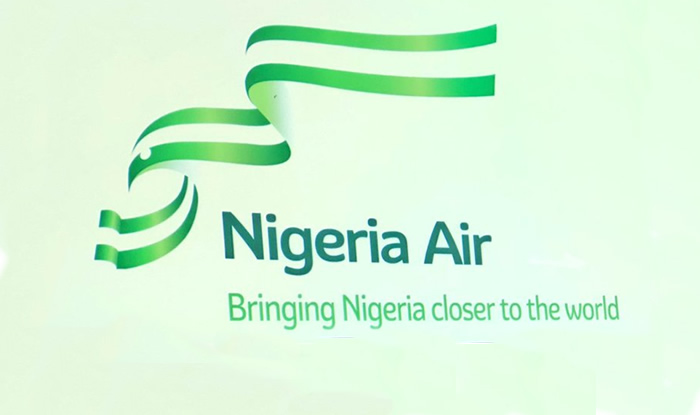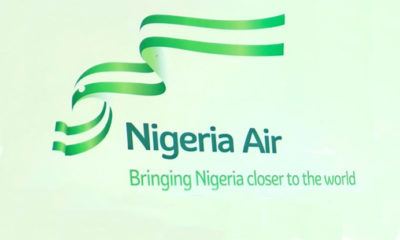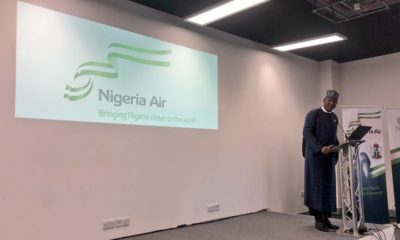- Federal Executive Council Divided on Nigeria Air — Amaechi
The Federal Executive Council is divided on the modality for the establishment of the proposed national carrier called Nigeria Air, the Minister of Transportation, Rotimi Amaechi, announced on Thursday.
Amaechi, who disclosed this during his valedictory press briefing in Abuja, also revealed that China had insisted that Nigeria opened a sinking fund and an escrow account in order to be able to seamlessly repay the loans which Nigeria borrowed from the Asian country for the construction of rail projects, particularly the Abuja-Kaduna rail.
The minister stated that members of the federal cabinet had different beliefs and positions as regards the establishment of a national carrier for Nigeria, but was quick to state that the project had not been abandoned.
He said, “On national carrier, (the) cabinet is divided on the issue of modality. There are those who believe that the Federal Government should invest and then we can sell the equity later.
“There are also those who believe that no, and from day one they say let us get investors in and give them the franchise of Nigeria Airways or Air Nigeria or whatever it is called. That is where we are and that is what held it down. But as for whether it is still in our plan, it is and has not been abandoned.”
In September 2018, media reported the suspension of the planned commencement of operations of Nigeria Air by the Federal Government.
Although no reason was given for the suspension at the time the project was suspended, it was gathered then that the national carrier initiative had been put on hold in the interim.
The Federal Government, through its Ministry of Transportation, the Aviation arm, had announced in July that Nigeria Air would commence operation before the end of 2018.
“I regret to announce that the Federal Executive Council has taken the tough decision to suspend the national carrier project in the interim. All commitments due will be honoured. We thank the public for the support as always,” the Minister of State for Aviation, Hadi Sirika, had tweeted in September 2018.
On the loan repayment issue, Amaechi told the Permanent Secretary of the Federal Ministry of Transportation, who was also at the briefing, to ensure that the Nigerian Railway Corporation opened the required accounts that would help in the repayment process.
The minister also revealed that nothing had been repaid by the government to offset the loan which Nigeria got from China for the Abuja-Kaduna railway.
He said, “Permanent Secretary holds him (NRC boss) to that instruction and the instruction is that all the money you get from Kaduna-Abuja railway every month, put it in an account. Remove the cost of operation. Whatever remains, let us start paying back, let’s develop a sinking fund or an escrow account where we pay that money into.
“So that we can even on our own start the payment before the Federal Government starts paying. Why I say this is because when we got to China, they insisted because of what they experienced with Kenya, Somalia and Sudan on their inabilities to pay back.”
He explained the purpose the two accounts would serve, adding that the Chinese insisted that Nigeria must open the accounts.
Amaechi added, “They insisted that we must open two types of accounts, an escrow account and a sinking fund account. The sinking fund account will require that every year we will put money there which is for the repayment of the loan, while the money for the management of that operation will be put in the escrow account.
“Let them put that money in the required account. But for now, nothing has been repaid. It is good you asked that question because I gave them that instruction and I’m not sure it’s been implemented up till now.”

 Naira4 weeks ago
Naira4 weeks ago
 Naira4 weeks ago
Naira4 weeks ago
 Travel4 weeks ago
Travel4 weeks ago
 Naira3 weeks ago
Naira3 weeks ago
 Jobs4 weeks ago
Jobs4 weeks ago
 Naira4 weeks ago
Naira4 weeks ago
 Investment4 weeks ago
Investment4 weeks ago
 Travel4 weeks ago
Travel4 weeks ago




















